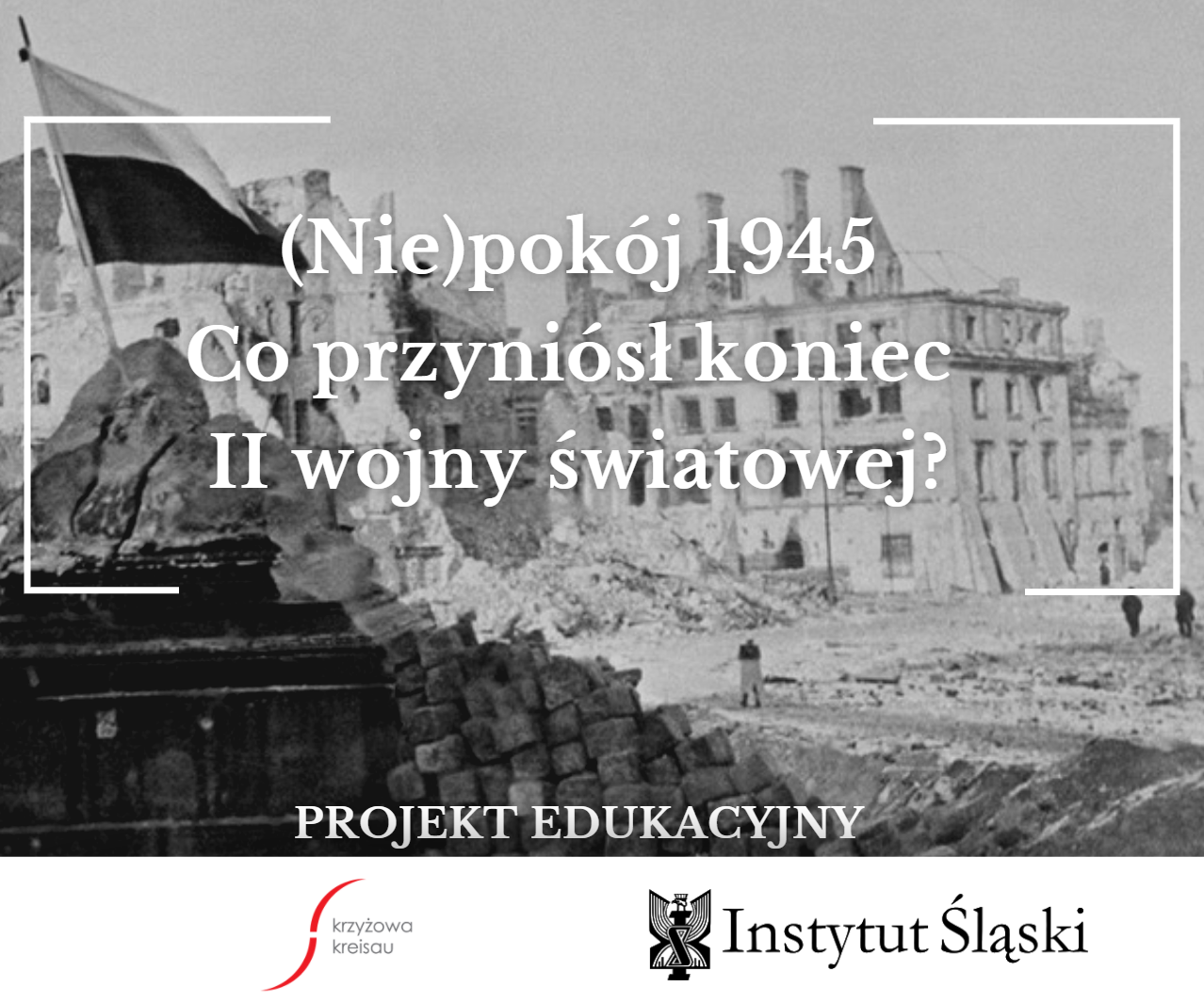
Despite the difficult situation and remote teaching, we do not interrupt our educational work. As part of the project "(Un)peace 1945. What did the end of the Second World War bring?", we have just conducted 15 workshops with the participation of primary and secondary school students from the Lower Silesian and Opole provinces. Almost 400 students and teachers took part in them.
We recommend scenarios (in Polish), which were prepared to tell young people exactly what happened in 1945 and why that year did not mean the end of the fighting and the beginning of the reconstruction of the country for the whole of Europe.
Read more: Online workshop || ( Un)peace 1945. What did the end of World War II bring?
 On 16 November, the Global Education Week 2020 began - an international, cyclical educational campaign aimed at drawing the attention of societies in Europe to the need to conduct education about global issues and problems. This year's TEG is held under the slogan "This is our world. Let's make it better". For 3 years, the Krzyżowa Foundation has been implementing the project "Our Common World - Global Education for Children", under which it supports educational institutions in the preparation of the Global Education Week. As part of the training meetings, the trainers share with the participants examples of activities that can be carried out in schools and kindergartens. In addition, each institution participating in the training receives a set of educational materials, including books, musical instruments, maps, globes, puzzles, dolls, helpful in conducting the Global Education Week activities, but also for introducing a global perspective in educational activities on a daily basis.
On 16 November, the Global Education Week 2020 began - an international, cyclical educational campaign aimed at drawing the attention of societies in Europe to the need to conduct education about global issues and problems. This year's TEG is held under the slogan "This is our world. Let's make it better". For 3 years, the Krzyżowa Foundation has been implementing the project "Our Common World - Global Education for Children", under which it supports educational institutions in the preparation of the Global Education Week. As part of the training meetings, the trainers share with the participants examples of activities that can be carried out in schools and kindergartens. In addition, each institution participating in the training receives a set of educational materials, including books, musical instruments, maps, globes, puzzles, dolls, helpful in conducting the Global Education Week activities, but also for introducing a global perspective in educational activities on a daily basis.
Read more: Global Education Week 2020: "Our Common World - Global Education for Children"
 „A united Europe was not achieved and we had war"
„A united Europe was not achieved and we had war"
Episode 7: Together for Europe (Establishing the Krzyżowa Foundation for European Understanding)
(...) The unification on the continent, postulated by Robert Schumann and other politicians shortly after WWII, seemed to be a complete utopia versus the Iron Curtain and Cold War.
On the 4th of June 1989 members of the Catholic Intelligence Club of Wrocław, together with friends from the USA, the Netherlands and both German states, came to Krzyżowa. Here, standing in front of the palace ruins, exactly in this place, they decided to create a European youth meeting centre. This is how the “Krzyżowa Foundation” for Mutual Understanding in Europe was created. (...)
Read more: „A united Europe was not achieved and we had war". Episode 7: Together for Europe

On 12 and 13 November, first meeting of the project partners „1990 / Year One. The democratic transformation in former Eastern Bloc countries” took place. It was attended by representatives of the Krzyżowa Foundation for Mutual Understanding in Europe, Paweł Włodkowic Institute (Poland), Stiftung Adam von Trott, Imshausen e.V. (Germany), Post Bellum (Czech Republic)` and Anyksciu svietimo pagalbos tarnyba (Lithuania).
During the meeting, experts in history and public history from Poland, Germany, the Czech Republic and Lithuania discussed historical policy and civic activities in the field of shaping collective memory, methodology and division of tasks that will be jointly implemented within the project.
Read more: The first meeting of the project partners „1990 / Year One. The democratic transformation in...







